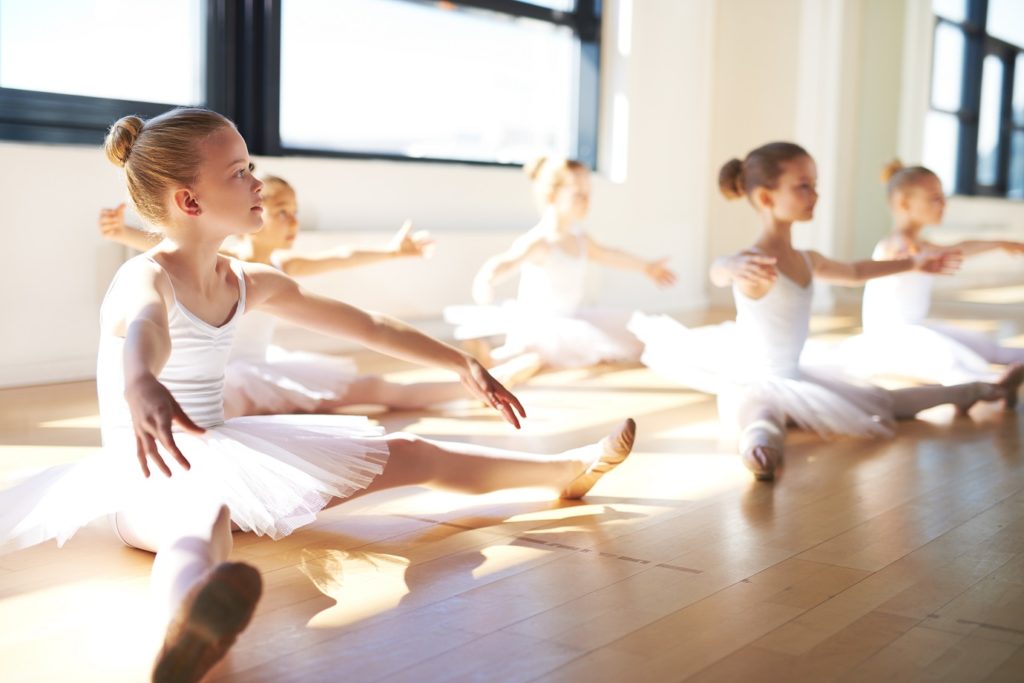“There’s no way any daughter of mine is wearing pink!”
This was my immediate thought upon discovering the firstborn child I was carrying was a girl. I wasn’t going to fall into any traps around overly defined and limiting gender roles. My daughter was going to be free to express herself however she chose, without some predetermined notion of overt femininity shoved on her from day one.
Of course, I wound up with the girliest of girls who dressed exclusively in tutus from ages two to five.
By the time daughter number two came along, I was a little more relaxed. But I resisted dance lessons, despite many friends getting their girls involved as soon as they could walk.
Hair flicks and hip swivels
Growing up, I was something of a ‘tomboy’. I’d always sneered at dancers. The over-the-top makeup. The drama and theatrics. The way the only role for women at football games was to dance for ogling men. I not-so-secretly thought of them as embarrassing relics, setting the feminist movement back with each hair flick and hip swivel.
And yet, my daughters loved to dance. From an early age, they gravitated to any kind of music, from chubby baby bum wiggling to Elsa-inspired Broadway routines as they grew older.
It wasn’t long until my youngest daughter shyly professed that she would like to go to dance lessons. And that’s how I recently found myself at my first dance concert.
I was, of course, excited about seeing my nearly-five-year old up in lights. I knew how hard she’d worked on her routine and how thrilled she was to be performing for us.
What I wasn’t prepared for was how moved I would be by all the performances. How proudly female it was. Here were girls of all ages and ethnicities, all shapes and sizes, demonstrating great athleticism and strength. But more than that, there was beauty and emotion in their performances. Intelligence and teamwork too.
Set to a powerful soundtrack, covering everything from Billie Eilish to Missy Elliot to Beyonce, and choreographed by an all-female teaching staff, these girls performed whole-heartedly. They came alive on the stage. They were truly in the flow.
This wasn’t for the male gaze, I realised. This was for them.
Stepping into power
Despite my grungy exterior and rejection of traditional female endeavours, hadn’t I always loved to dance? Hadn’t I secretly adored pop music? Wasn’t I still the first one onto the dancefloor at any wedding? Wasn’t there something joyous and ancient and human about moving my body freely and expressing myself without words?
By the end of the show, I was a convert. On the stage I saw girls step into their power. Lose themselves in the rhythm. Discover their confidence.
The patriarchy teaches us that anything feminine is inherently less-than, frivolous, silly. By scorning dance, I was perpetuating the stereotype that only tough, serious, male-focused pursuits are worthy of appreciation.
This particular dance school seemed to be entirely female, although I know dance is just as important to many boys. I have friends whose boys love many aspects of so-called ‘feminine’ activities, from dancing to singing to painting their toenails and playing with dolls. They do it because they enjoy it and their world has enabled it.
But how many boys are shamed into rejecting dance and sparkles and even their emotions? How much of themselves are they being forced to give up to fit an idea of masculinity?
Harry Styles was trending on Twitter this week after causing a (somewhat predictable) stir for wearing a dress on the cover of Vogue. It was hardly groundbreaking, coming some 40-odd years after David Bowie and Elton John, and yet it feels like each new generation of boys is required to keep fighting for their right to embrace their softer sides.
.@harry_styles is our December issue cover star!
— Vogue Magazine (@voguemagazine) November 13, 2020
Read how the star is making and playing by his own rules: https://t.co/tQPLi5OEtj pic.twitter.com/AxZgxE68Rx
As parents, are we doing enough to foster an appreciation for both the feminine and masculine view of the world? Dancing and dirt play? Emotional intelligence and physical strength? Compassion and self-confidence?
Keeping the fire alive
Walking out of the auditorium with my elated daughter, I asked her how it had felt to perform.
“It felt good,” she said simply, in the way of children her age.
She may decide in time she’s had enough of dance lessons. She may end up becoming a rugby league player or mountain climber or chess grandmaster or something else altogether.
I’m ok with that. I just hope she keeps the fire inside her alive. The one I saw burning ever-so-brightly on that stage.


